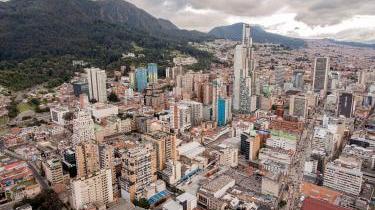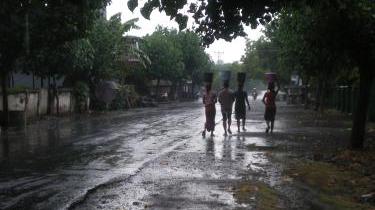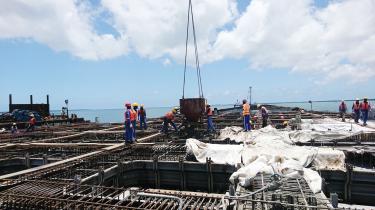2020 saw the culmination of four years of work by the Cities Alliance to investigate the links between the provision of public goods and services, and equitable economic growth in secondary cities in least developed countries (LDCs). Triple Line, which contributed diagnostic and analytical inputs to the programme since its start in 2016, conducted this synthesis to bring together the knowledge gained and lessons learnt over the course of the programme.
In 2016, Cities Alliance established a four-year Joint Work Programme (JWP) on Equitable Economic Growth (EEG) in Cities (JWP-EEG) to better understand and strengthen the link between public service provision and equitable economic growth in cities. To accomplish this goal, Cities Alliance worked with local governments, city stakeholders and development partners to produce global knowledge products, facilitate policy dialogues and support city-level diagnostics and policy recommendations to respond to the challenges of inequitable economic growth in cities.
As the programme was coming to an end, Cities Alliance commissioned Triple Line to synthesise the knowledge gained and lessons learnt from the four years of the programme. This synthesis is part of the legacy of the programme and can be used to inform future EEG initiatives. Given our deep familiarity with the programme, technical expertise and on-the-ground experience in the focus cities, our team was well qualified to distil relevant and compelling themes emerging from the evidence base that had been built up over the years.
The synthesis was based on review, analysis and summary of the full body of work of the JWP-EEG in order to provide an overview of the findings and recommendations generated across the programme. We also reviewed the JWP-EEG theory of change in light of the JWP-EEG body of work and developed products to illustrate, substantiate and disseminate the JWP theory of change. We conducted a cross-analysis of the knowledge produced under the various JWP-EEG components and across the JWP-EGG Campaign Cities (Sylhet and Narayanganj in Bangladesh; Mbale and Gulu in Uganda; Cape Coast and Agona Swedru in Ghana; Kajiado and Nyandarua in Kenya) in order to highlight key aspects of fostering equitable economic development in secondary cities. In particular, we extracted and highlighted knowledge, insights and recommendations emanating from the JWP Campaign Cities initiative, and produced related outputs for public dissemination.
Measures to improve equitable access to public goods and services can and do have a direct and positive impact on EEG. We now have a better understanding of what levers need to be pulled in order to promote EEG
A key overall finding of the JWP-EEG is that measures to improve equitable access to public goods and services can and do have a direct and positive impact on EEG. We now have a better understanding of what levers need to be pulled in order to promote EEG. Future urban development initiatives can more effectively focus on ways to provide and manage public goods and services that directly relate to two of the most important development challenges of our day, namely equality and sustainability. Strengthening equitable access to public goods and services in a way which improves the employment opportunities and life chances of the working poor, and those operating in the informal economy, can ultimately support the structural transformation of city and national economies.
Further reading:
We developed the following toolkits to diagnose, assess and promote EEG in cities:
Credit: Video by Cities Alliance
Toolkit to Assess and Promote Equitable Economic Growth in Cities
The Toolkit to Assess and Promote Equitable Economic Growth in Cities is a simple, user-friendly, flexible tool to help mayors understand what equitable economic growth means for their city, and what kind of opportunities and constraints exist.
It is based on the premise that equitable economic growth in urban areas requires improving infrastructure and public services at the local level, and securing access to these public goods for citizens, private sector and state-owned businesses regardless of economic status, gender, ethnicity, or residential location.



